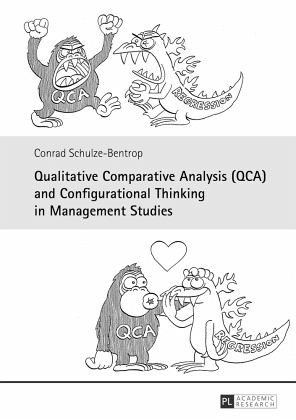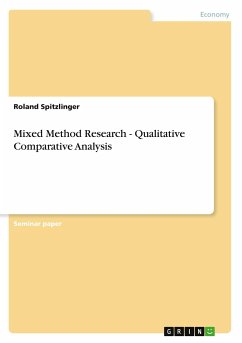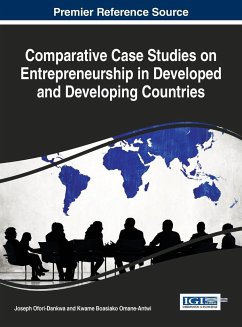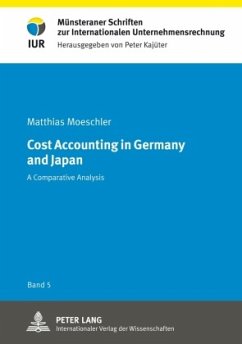
Qualitative Comparative Analysis (QCA) and Configurational Thinking in Management Studies
Dissertationsschrift
Versandkostenfrei!
Versandfertig in 6-10 Tagen
61,95 €
inkl. MwSt.

PAYBACK Punkte
0 °P sammeln!
This study was awarded the Preis des Präsidiums für ausgezeichnete Dissertationen der Universität Paderborn as well as the Preis der Unternehmergruppe Ostwestfalen für hervorragende Dissertationen.Qualitative comparative analysis (QCA) - especially its fuzzy set version - has emerged as a new methodological tool in management studies which is ideally suited to test configurational theories. For the first time, the peculiarities of QCA in large-N designs are comprehensively analysed. Based on a systematic compilation of 145 empirical QCA studies valuable insights for the use of QCA as a qua...
This study was awarded the Preis des Präsidiums für ausgezeichnete Dissertationen der Universität Paderborn as well as the Preis der Unternehmergruppe Ostwestfalen für hervorragende Dissertationen.
Qualitative comparative analysis (QCA) - especially its fuzzy set version - has emerged as a new methodological tool in management studies which is ideally suited to test configurational theories. For the first time, the peculiarities of QCA in large-N designs are comprehensively analysed. Based on a systematic compilation of 145 empirical QCA studies valuable insights for the use of QCA as a quantitative technique are presented. For example, an innovative formula is developed which can substantially improve future model specifications. In a next step, the potential of QCA in management research is outlined by tracing configurational theories in a range of disciplines including strategy, HRM, marketing, and international business. This tour d'horizon through management studies highlights the wide application area of the methodology. Finally, an illustrative study is conducted using the fuzzy set version of QCA.
Qualitative comparative analysis (QCA) - especially its fuzzy set version - has emerged as a new methodological tool in management studies which is ideally suited to test configurational theories. For the first time, the peculiarities of QCA in large-N designs are comprehensively analysed. Based on a systematic compilation of 145 empirical QCA studies valuable insights for the use of QCA as a quantitative technique are presented. For example, an innovative formula is developed which can substantially improve future model specifications. In a next step, the potential of QCA in management research is outlined by tracing configurational theories in a range of disciplines including strategy, HRM, marketing, and international business. This tour d'horizon through management studies highlights the wide application area of the methodology. Finally, an illustrative study is conducted using the fuzzy set version of QCA.












